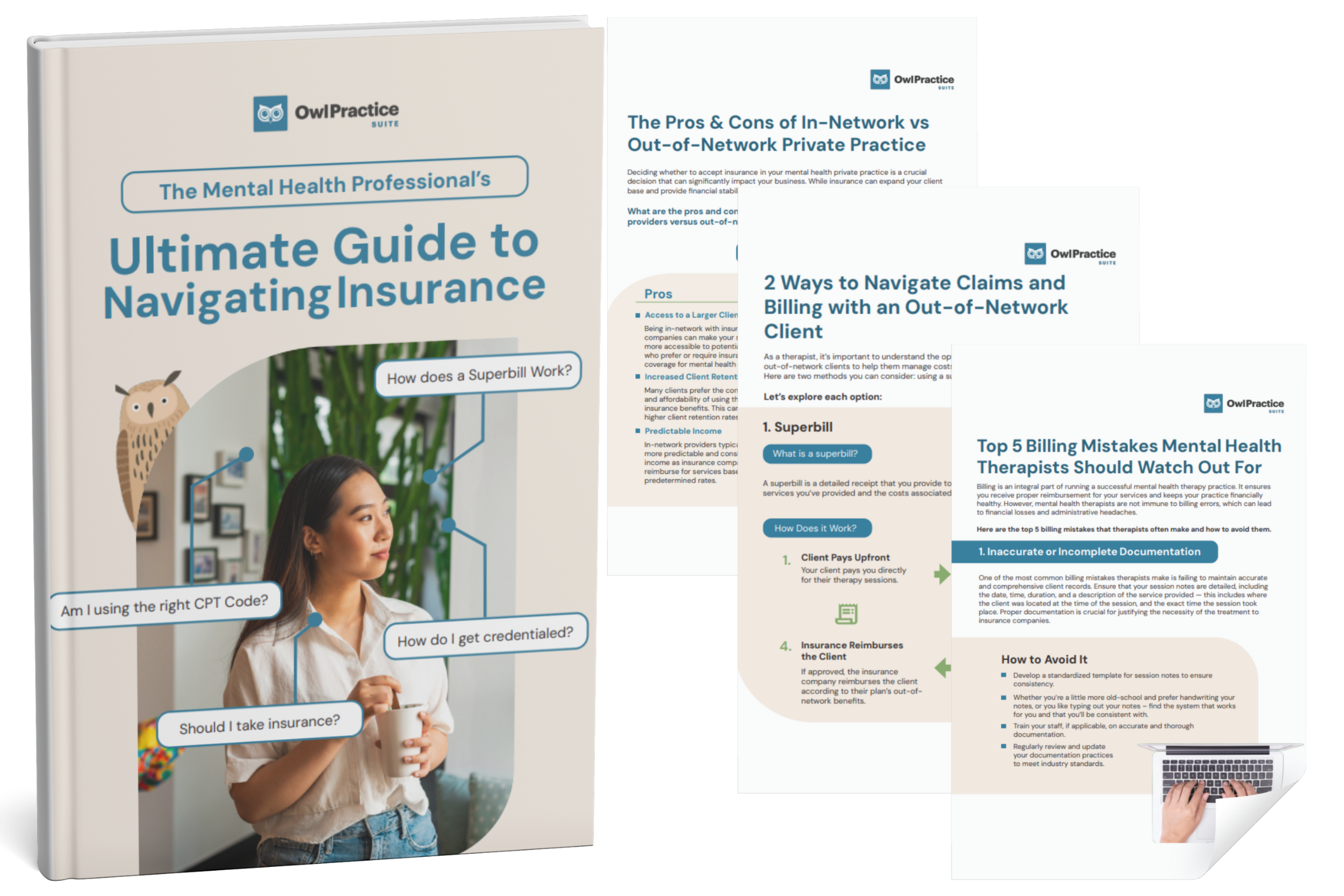The decision to accept insurance or maintain a cash-based practice in your mental health private practice is highly individual. Consider your goals, preferences, and your target client base when making this decision. It’s not uncommon for practitioners to mix both in-network and out-of-network clients to balance accessibility with higher income potential.

Insurance Panels and Credentialing
Starting or expanding a mental health private practice often involves navigating the complex world of insurance. While it may seem daunting, understanding these aspects is essential for mental health practitioners looking to serve a diverse clientele and streamline their billing processes. We will demystify how insurance panels and credentialing can work for you.
Understanding Insurance Panels
Insurance panels, also known as provider networks, are lists of healthcare providers and professionals who have agreed to provide services to clients covered by specific insurance companies.
These panels are vital for mental health practitioners who wish to accept clients with insurance coverage.
Here’s how insurance panels work:
Application and Approval: To join an insurance panel, you typically need to submit an application to the insurance company. The application will include details about your qualifications, experience, and licensing. Once the application is reviewed and approved, you are added to the panel.
Network Participation: Being part of an insurance panel means you have a contractual agreement with the insurance company. You agree to provide services to clients covered by that insurance company and ad- here to their terms and reimbursement rates.
Client Referrals: Once you’re on an insurance panel, clients covered by that insurance company can be referred to you by the insurance provider. Listing the insurance company or companies that you’re paneled with on your directory profiles can also help you expand your client base.
The Credentialing Process
Credentialing is the process by which insurance companies verify and assess the qualifications and competence of healthcare providers before allowing them to participate in their networks. This process ensures that providers meet certain standards of care.
The credentialing process typically includes the following steps:
- Application Submission: You will need to complete a credentialing application provided by the insurance company. You’ll have to fill out information about your education, licensing, certifications, and experience.
- Verification of Credentials: The insurance company will verify the information you provide on the
application. This can involve checking with licensing boards, aca- demic institutions, and other sources to confirm your qualifications. - Decision and Approval: After a thorough review, the insurance company will decide whether to approve your credentialing application. If approved, you become a participating provider in their network.
Why Join an Insurance Panel
Increased Client Base: Being part of an insurance panel can attract clients who prefer to use their insurance benefits for mental health services.
Streamlined Billing: Insurance companies typically handle much of the payment and reimbursement process, simplifying billing for providers.
Bonuses: Being part of an insurance panel may reduce the need for marketing yourself as a therapist, and joining an insurance panel increases wider mental health care access.
Challenges of Joining an Insurance Panel
Lower Reimbursement Rates: In-network providers often receive lower reimbursement rates compared to out-of- network providers.
Administrative Requirements: Providers may need to adhere to specific documentation and treatment guidelines imposed by the insurance company.
Summary
While it can be a complex and time-consuming process to understand the insurance landscape, the potential benefits, including an expanded client base can make it a worthwhile endeavor for many practices. You might also want to consider what type of provider you want to be. If you value flexibility in location and offering telehealth, some plans may not allow you to do so.
Careful consideration of the pros and cons will help you decide if joining an insurance panel is the right choice for your mental health private practice.

Get the “Ultimate Guide to Navigating Insurance” eBook Below!
Reduce clinical administrative tasks and transform more lives with Owl Practice. Owl Practice provides all the tools you need to make your practice successful. Join the thousands of care professionals using Owl to run their practice every day.



